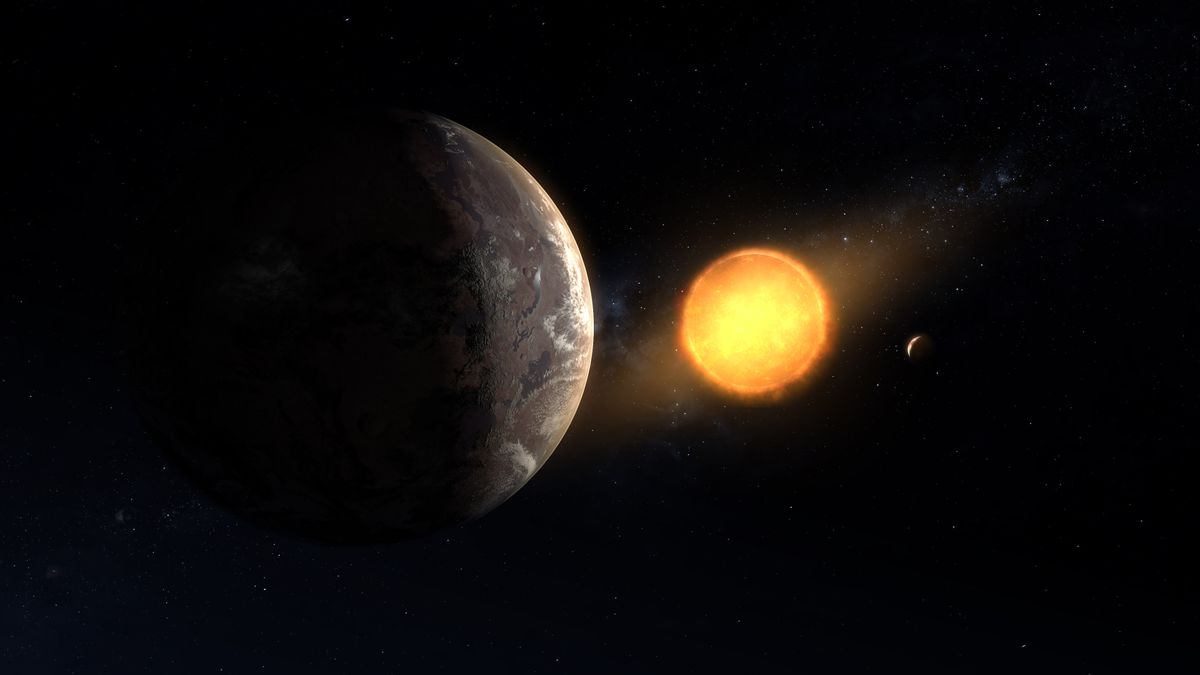
Rocky planets that formed early in our Milky Way galaxy's 13.2-billion-year history have a better chance of supporting life than worlds that were later to the party, a new study suggests.
That's because the early formers are more likely to sport plate tectonics, magnetic fields and other features conducive to the development and persistence of life as we know it, researchers said.
"Plate tectonics is important for habitability, and it looks like the optimum conditions [for] plate tectonics existed for planets forming early in the galaxy’s lifespan, and may be unlikely to easily recur," study lead author Craig O'Neill, director of the Macquarie Planetary Research Centre at Macquarie University in Sydney, Australia, said in a statement. "For life, maybe that was as good as it gets."
Related: The Biggest Alien Planet Discoveries of 2019
O'Neill and his colleagues studied Milky Way exoplanets — worlds orbiting stars other than the sun.
"Because of the great distances involved, we have a limited amount of information on these exoplanets, but we can understand some factors, such as position, temperature and some idea of the geochemistry of the exoplanets," O'Neill said. "This allows us to model how they develop."
The team plugged these parameters into planet-development simulations run using processors at the National Computational Infrastructure, which is based at Australian National University in Canberra.
The researchers found that planets that form relatively early in their galaxy's history are more likely to develop plate tectonics, which serves as a built-in thermostat of sorts that keeps the surface cool enough for life as we know it to evolve.
The lack of plate tectonics is bad news for life in multiple ways, O'Neill said.
"This doesn't just affect the surface temperature; this means that the core stays hot, which inhibits the development of a magnetic field," he said. "If there's no magnetic field, the planet is not shielded from solar radiation, and will tend to lose its atmosphere. So life becomes difficult to sustain. A planet needs to be lucky to have the right position and the right geochemistry at the right time if it's going to sustain life."
A planet's geochemistry is also affected by the era in which it formed, by the way, because the chemistry of galaxies changes over time. For example, later on, more heavier elements have been distributed through supernova explosions, and less lighter material (such as hydrogen or helium) may be available for forming stars and planets.
The new results were presented last month at the Goldschmidt Virtual 2020 conference, which ran from June 21 through June 26.
Follow Elizabeth Howell on Twitter @howellspace. Follow us on Twitter @Spacedotcom and on Facebook.
https://www.space.com/milky-way-exoplanets-life-early-formation.html
2020-07-09 15:00:00Z
CAIiEPLOPOEnjlGDiKHu1lFAmNoqMwgEKioIACIQiaYKTaVj4jekEifjHCx8jCoUCAoiEImmCk2lY-I3pBIn4xwsfIww3rrKBg
Bagikan Berita Ini















0 Response to "Most of the Milky Way's life-hosting planets may have formed early on - Space.com"
Post a Comment